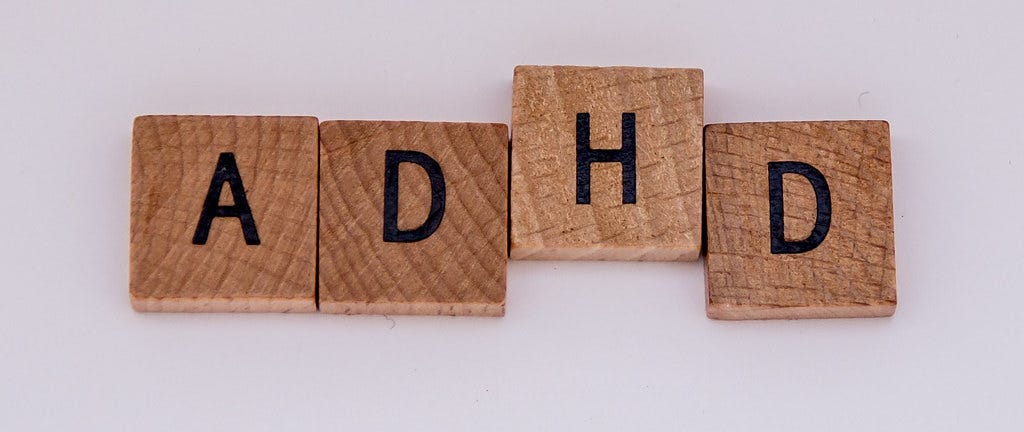Does My Child Have ADHD?
Thinking About Diagnosis, Symptoms, Treatment
Attention Deficit Hyperactivity Disorder (ADHD) is a neurodevelopmental condition—not a mental health disorder. This means it is an expression of how the brain has developed atypically during its formative years. That means anybody saying “it’s parenting style!!” or “we didn’t have it in my day!!” can be safely ignored, and you can feel your blood pressure go down.
It affects people of all ages but it is most commonly diagnosed in the primary school tears. As it is a chronic and complex condition that can be debilitating, it is important that it is managed appropriately—however you choose to do so. Let us dive into delve into the diagnosis process, symptoms, treatment options, and average waiting times for ADHD diagnosis and treatment in the UK.
What are the symptoms of ADHD?
Symptoms of ADHD can vary among individuals and may evolve. These days presentations, rather than subtypes, of ADHD are mentioned. The reason for this being that ADHD, like a lot of chronic conditions, can change over a lifetime. Even these presentations are quite limited for such a complex condition.
The three main presentations are:
Predominantly Inattentive Presentation: Young people with this presentation with present with difficulty sustaining their attention, they may struggle to organise their tasks, they may need support in following instructions, and often can be forgetful.
Predominantly Hyperactive-Impulsive Presentation: Young people with this presentation will usually exhibit restlessness, be impulsivity, have difficulty waiting their turn, find themselves interrupting others, and may talk excessively.
Combined Presentation: Young people with this presentation will demonstrate a majority or all of the above symptoms in both presentations above.
It is essential to recognise that symptoms may manifest differently in girls compared to boys, and this has often been reflected in late diagnosis rates. Individuals with ADHD may also experience challenges with emotional regulation and social interactions, but this does not form part of the core diagnostic criteria—for whatever reason…
How does it work?
The process may entail:
Clinical Interviews: Healthcare professionals gather information from parents, teachers, and the individual to assess symptoms and their impact on daily life.
Behavioural and Developmental Assessments: These assessments evaluate behaviour, attention span, impulsivity, and hyperactivity through standardised questionnaires and observation. These might include the Conner’s Comprehensive Behavioural Rating Scale or a Continuous Performance Task such as the QbTest.
Medical Evaluation: A physical examination and review of medical history are conducted to rule out other potential causes of symptoms.
Can ADHD be treated?
Yes!
I alluded to this in my previous post. ADHD responds well to multi-modal management—ADHD typically involves a combination of behavioural interventions, psychoeducation, and medication. Treatment plans are tailored based on symptom severity, age, and co-existing conditions (such as heart conditions).
Treatment options may include:
Cognitive Behavioural Therapy and Psychosocial Education: CBT can help a young person with ADHD by helping them to recognise the link between their thoughts, their feelings and their behaviours. This can help them break the link between these and adopt new, positive behaviours.
Psychoeducation may take the form of parent training programmes so parents know what they can do to support good ADHD skills in their children by helping them develop ways of coping, better organisational skills, and working with impulsivity.
Medication: Stimulant medications such as methylphenidate and lisdexamfetamine are commonly prescribed. Non-stimulant medications like atomoxetine may be recommended for individuals who do not respond well to stimulants, or who may have certain heart problems.
Lifestyle support: Young people with ADHD may benefit from high levels of exercise which will support them to regulate their own symptoms effectively. Diets that are higher in protein and lower in carbohydrates might also contribute to good management of ADHD
Can anybody make a diagnosis of ADHD?
ADHD assessment can be conducted by any number of professionals who cannot diagnose ADHD alone, which may include specialist nurses, mental health support workers and others. They then feedback what they found to a consultant like a psychiatrist or paediatrician. This is what is meant by multidisciplinary team (MDT) approach, which you may have heard.
The people who will ultimately make the diagnosis could be one of the following:
Specialist Medical Doctors: These specialists in child health who can assess and diagnose ADHD in children and young adolescents, such as Consultant Paediatrician or Consultant Psychiatrist, or a Specialty Doctor in Psychiatry or Paediatrics. These professionals can also initiate medication to manage ADHD.
Clinical Psychologists: These trained professionals who conduct psychological assessments and diagnostic evaluations for ADHD in children, teenagers, and young adults. They cannot initiate medication to manage ADHD, as they are not medical doctors and cannot qualify as Non-Medical Prescribers but this may change in the future.
How long will a young person wait for an assessment?
In the UK, waiting times for ADHD diagnosis and treatment can vary depending on factors such as geographical location, availability of specialist services, and healthcare system resources. It can also vary by commissioning and the age of the child or young person. There is no fixed standard waiting time, individuals may experience delays in accessing assessment and support services.
According to National Institute for Health and Care Excellence (NICE) guidelines, children and young people suspected of having ADHD should be referred for assessment and diagnosis by healthcare professionals trained in ADHD management. However, due to high demand and limited resources, specialist assessments and interventions can wait from several weeks to several months.
To minimise waiting times and ensure timely access to support, individuals and families need to advocate for their needs, communicate openly with healthcare providers, and explore alternative avenues for assistance, such as private assessments or community-based support groups. There is also the option of looking for NHS-funded assessments that are available sooner that might be further afield, such as through NHS Right To Choose (but this applies to people registered with a GP in England only).
Can you help me?
I am not a professional in the assessment or diagnosis of ADHD. However, I can help you navigate the process of getting an assessment. I am also able to help with coaching sessions, for you as a parent or carer, or for your child or teenager. I can also advise you on what options are available, such as NHS Right To Choose, and can help you navigate the process with your GP.
Please get in touch:
Final thoughts
ADHD is a very complicated, lifelong condition which can be managed successfully, and young people with a diagnosis of ADHD can thrive. Being a parent or carer to a young person with ADHD can be challenging, as is navigating an entire landscape of complicated support, assessment, diagnosis can be overwhelming. Have some grace for yourself during this process.
Did you like this post? Think you have a friend who might want to read it?
Make sure you don’t miss any of my other posts:
Please note that this blog post provides general information and should not substitute professional medical advice. If you or someone you know is experiencing ADHD symptoms, seek guidance from a qualified healthcare professional.




